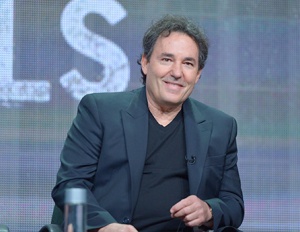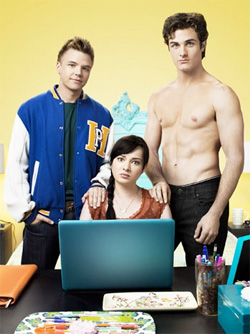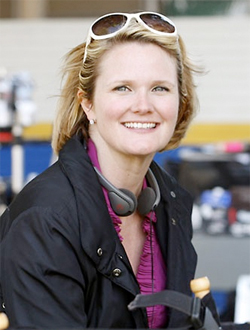 When veteran writer/producer John Wirth took over as showrunner on AMC’s Hell on Wheels, it was a somewhat strangely public process. John Shiban, the showrunner for the show’s first two seasons, backed out unexpectedly after the series was renewed, leading AMC to make the series’ pickup contingent on finding a new showrunner. With series creators Joe and Tony Gayton departing as well, Wirth stepped into a series with established characters, existing storylines, and more or less complete creative freedom to take the show in whatever direction he desired.
When veteran writer/producer John Wirth took over as showrunner on AMC’s Hell on Wheels, it was a somewhat strangely public process. John Shiban, the showrunner for the show’s first two seasons, backed out unexpectedly after the series was renewed, leading AMC to make the series’ pickup contingent on finding a new showrunner. With series creators Joe and Tony Gayton departing as well, Wirth stepped into a series with established characters, existing storylines, and more or less complete creative freedom to take the show in whatever direction he desired.
That direction has made the show a strange sort of success story for AMC, shuffled off to the prestige-less refuge of Saturday nights where it’s been quietly outperforming expectations (see Kate Aurthur’s report at Buzzfeed for more). It concludes its third season tonight at 9/8c on AMC with the expectation that it has earned a fourth season, and having successfully transitioned from a slightly underperforming prestige AMC drama to a successful translation of their film western audience into original programming on a normally dead night.
At July’s TCA Press Tour before the season premiered, I had a chance to talk to Wirth about his perspective on showrunning, how he came to be involved with Hell on Wheels, his planned use of social media (which I’ll be reflecting on soon elsewhere), and how—despite the strange circumstances—Hell On Wheels marks a meaningful period in his career as a showrunner-for-hire.
This is far from your first time serving as showrunner on a series; in fact, the Internet suggests you were part of a “Showrunner Training Program” at some point? How do you train someone to be a showrunner?
JW: I put together a committee of writer-producer-showrunner types. We did a small book called A Television Writers’ Handbook. And it was the first time in the history of the Writers’ Guild that anybody had codified what it is to work on a TV show and what the various positions are and what’s expected of you when you’re in those positions. And we had a big chapter on showrunners, and how to behave as a showrunner, and so forth.
Out of that, Jeff Melvoin—who I had asked to be a part of that committee—had the idea: is this something we could teach? And I didn’t believe that it was, and he believed that it was. He said “I’m going to try to put together this program, will you work on it with me? “And I said sure, but I don’t want to be in charge—this little book we did took five years, and I thought it would take a couple months.
We put together the Showrunner Training Program, which has been enormously successful. I still don’t believe you can teach someone to be a showrunner, but you can expose them to the things they’re going to experience when they are showrunners. That’s really the goal of that program, to let people know what it is they’re going to be experiencing when they get that job.
What’s that job like?
The job itself is ridiculous. You’re the hardest working man or woman in show business – the hours are incredible, you have to be a writer/producer and manager, you have to manage up down and sideways, you have to be a priest, you have to be a magician, you have to be a wife – it’s nutty.
So why you do you think AMC came to you to fill that job on Hell on Wheels?
JW: I think they got to the Ws in their rolodex and were like “Damnit!” Who’s after this guy? We’d better like him. Continue reading

 Awkward. has been successful with MTV’s key market, drawing significant fan response for its relatable teen characters among young female demographics. It’s a show that fits comfortably into expectations for a show in the age of social media, eminently hashtaggable, and it’s become a key cornerstone in the channel’s original programming efforts.
Awkward. has been successful with MTV’s key market, drawing significant fan response for its relatable teen characters among young female demographics. It’s a show that fits comfortably into expectations for a show in the age of social media, eminently hashtaggable, and it’s become a key cornerstone in the channel’s original programming efforts.












